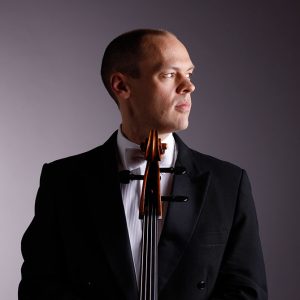
Passing It On
Brant Taylor
A few weeks back, I was having a post-concert drink with my friend and colleague Joshua Gindele, cellist of the Miro Quartet, and the conversation turned to teaching. Though we are both associated with ensembles that perform dozens of concerts every season, teaching the cello is an important component of both of our musical lives. (Josh teaches at the University of Texas at Austin, and I teach at DePaul University.)
Discussions on the general relationship between performing and teaching often give rise to interesting questions, some without straightforward answers. Many performers teach even though the skill sets required for good teaching and good performing are far from identical. If great teaching is something that is learned, when and how are the skills acquired? If a performer is a big star with high name recognition, do some people assume—perhaps wrongly—that the person is a good teacher? (Our answer: yes.) Might a college-level institution hire a star performer to attract students, while the star’s teaching skills—or lack thereof—are of secondary importance? (Ideally no, but unfortunately yes.) Is it possible to define good (or successful) and bad (or unsuccessful) teaching in any objective way? Are good teachers routinely encouraged and promoted, and vice versa? Assuming that most people would not gravitate to teaching if they felt they were bad at it, does this mean most people who teach believe they are good at it? One of my teachers, Janos Starker, may have put it best, if charitably: ‘perhaps there is no such thing as bad teaching, only incomplete teaching…’
The most basic question, however, may be: why do I teach? I have a full-time job as a performer, so teaching is mainly a matter of choice, not necessity. I enjoy interacting with students, connecting with them, figuring out what their needs are and how they learn best, and helping them to realize their unique potential and achieve their goals. And what teacher doesn’t relish those moments when we know we’ve truly reached someone? We see the gleam in the student’s eye as they raise their awareness or take their skills to the next level. Teaching is a great learning experience, and there is no substitute for the challenge of developing finely-honed skills in both verbal description and instrumental demonstration. But for me, none of these things really addresses the question, why? They are meaningful things, to be sure, but they aren’t exactly why I teach.
For those of us who believe we’ve been fortunate to have had really great teachers, a strong sense of responsibility can lead to a desire to pass valuable information and traditions on to future generations of musicians. Music is one of the very few disciplines where becoming proficient at a high level requires a close apprenticeship with another individual. Though people try, it is impossible to learn to play the cello at a high level solely from reading technique books or studying online videos. These tools can play a supplemental role at the proper time in a student’s development, but the core of the way we learn is working closely with someone who knows more about the subject than we do. We all need the guidance of someone who can watch and listen with critical eyes and ears, giving us very immediate, individual feedback. This one-on-one instruction forms the basis of most serious instrumental music study and is quite unique when compared to other fields.
Because the music world is relatively small, many of us don’t have to trace our educational lineage too far back to find direct connections to some of the legendary figures in our field. My teachers in college and graduate school were Paul Katz and Janos Starker, my cello “fathers.” Mr. Katz studied with Mr. Starker too, and also with Gregor Piatigorsky, Gabor Rejto, and Bernard Greenhouse, my cello “grandfathers”. Mr. Starker studied with Adolf Schiffer, who was one of the last proteges of—David Popper. Popper as my cello “great-grandfather”? Pretty cool.
When I was younger, busy with practicing and the many other concerns of student and young professional life, I didn’t dwell too much on these questions. But as with everything, time provides perspective. Though both my college and graduate school teachers are still teaching, my generation is becoming largely responsible for passing on the traditions of our chosen discipline to those who are where we were twenty years ago. It honors the roles of our cello “ancestors” and helps ensure that the next generation will have the wisdom and tools they’ll need to carry on when their time comes.
This, come to think of it, is why I teach.
Subjects: Artistic Vision
Tags: Awareness, Bernard, Brant, cello, cello technique, cellobello, David, Development, Experience, Greenhouse, Gregor, inspiration, Janos, Katz, music, Paul, performance, perspective, Piatigorsky, Popper, Quartet, Starker, Taylor, Teaching
